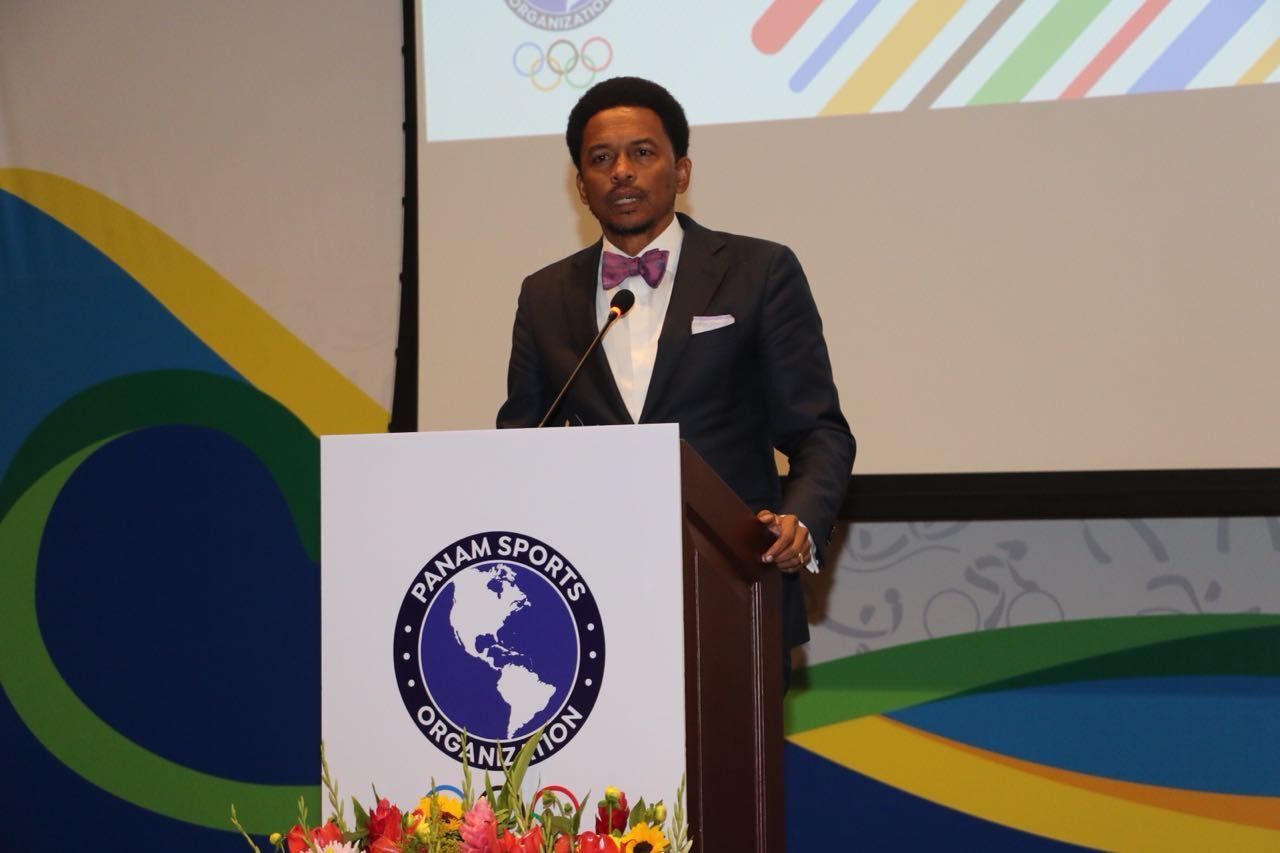T&T Olympic Committee president Brian Lewis is pleased by the move of the Commonwealth Games Federation (CGF) in giving athletes the freedom to protest on the podium at this year's event to be held in Birmingham, England.
on Wednesday, the CGF's Athletes Advisory Commission (AAC), chaired by former high jumper Brendan Williams of Dominica, released a nine-page document, providing guidelines allowing athletes to express themeselves.
"I think it was an important first step from the Commonwealth Games Federation," said Lewis, who has been an advocate of athletes having the right to freedom of opinion and expression.
"Credit to Brendan Williams whose leadership in terms of this particular issue is very instrumental and influential. In fact, what the CGF had done in addition to its' athlete advisory commission chaired by Brendon Williams and comprising of athletes is that it included what they called an international expert working group of which I had the privilege and opportunity to be part of that international expert working group that worked along with the athlete advisory commission in creating this document.
"There was a lot of work and robust discussions and conversation and credit must be given to a very inclusive and diverse group of individuals and of course the Commonwealth Games sports movement who would have contributed to this document."
The move by the CGF means that athletes competing at this year's Commonwealth Games will be allowed, for example, to raise a fist on the podium to protest in favour of racial equality.
Williams in his introduction to the document, stated: "A priority for me as the CGF AAC Chair is ensuring that every single athlete, in every single nation and territory, has a voice and a platform to be heard."
He added: "It is important for every Commonwealth athlete to know what that means and what that looks like, particularly at our flagship event; the Commonwealth Games.
"That is why I am proud that, after much work and consultation, we have created three Athlete Advocacy Guiding Principles to support our athletes.
"This work has been developed by and for athletes, but it applies to all participants who may wish to make positive expressions of their values in accordance with these Guiding Principles.
"Aligned with the principles of the Commonwealth Charter, these focus on freedom of expression and positive action.
"This is not a protest policy, rather principles that encourage tolerance, respect and understanding."
According to the document any such positive expressions of values are subject to the CGF "Charter of Good Conduct".
The guiding principles are: 1 The CGF recognises that athletes are: inspirational leaders, agents of change, advocates for integrity, ambassadors for respect, impartiality and non-discrimination; 2 The CGF is supportive of freedom of expression and trusts, respects and understands that athletes may want to make positive expressions of their values in line with the CGF values of Humanity, Equality and Destiny; 3 Allowing athletes so in at Games Advocate for against social injustice.
Lewis said: "Even though the Commonwealth Games athletes' advocacy working group had come forward and created a document, which still required Brendan Williams as the chair of the athletes' advisory commission to take it to the CGF executive board led by president Louise Martin and they had to be convinced to approve it, so all-round it has to be acknowledged that this is brave and courageous stuff taken by the CGF.
"At least from the CGF's perspective, this is athlete-led athlete-centred and athlete-driven. Whereas, in the context of the International Olympic Committee (IOC), it is still very much led by IOC president Thomas Bach and his executive members and then they are getting the support of the athlete commission but it is questionable from the Olympic Committee IOC perspective."
For Lewis, the task will be how to move from the written document to the implementation in a way that is meaningful and in a way, that embraces all the stakeholders.
"Of course, this is so significant and game-changing as articulated by Brendan Williams, the chair that I for one, don't anticipate an easy transition," he said
"Not everyone is going to be happy but at the end of the day, it is imperative and that CGF given its historical realities and antecedents, it is landmark that the CGF has taken this brave and bold step."

